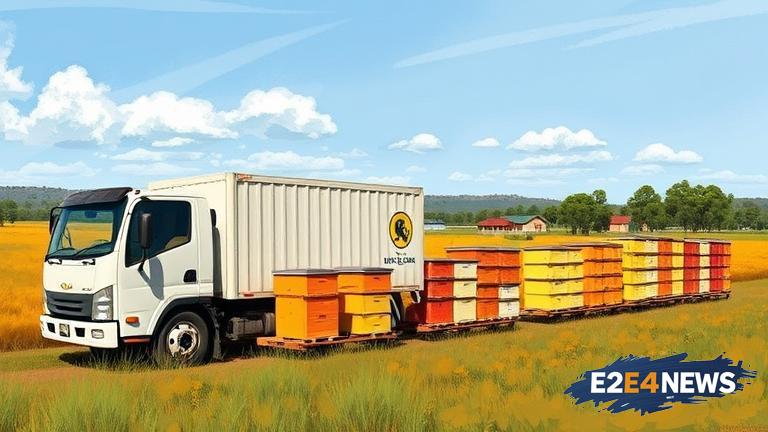In a heartwarming display of interstate cooperation, Western Australian beekeepers have answered the call for help from South Australian farmers who are struggling with a shortage of bees. The farmers, who are in dire need of pollination services for their crops, reached out to their counterparts in WA for assistance. Responding to the plea, WA beekeepers have sent truckloads of beehives to SA, providing a much-needed boost to the local agricultural industry. The beehives, which are home to thousands of bees, will play a crucial role in pollinating crops such as almonds, apples, and pears. Without the help of these bees, many of these crops would be unable to reproduce, resulting in significant losses for farmers. The shortage of bees in SA has been exacerbated by a combination of factors, including disease, pests, and climate change. As a result, many farmers have been forced to rely on imported bees, which can be expensive and unreliable. The arrival of the WA beehives is a welcome relief for these farmers, who are now able to access the pollination services they so desperately need. The beehives are being transported to SA on large trucks, with each truck carrying hundreds of hives. The bees are being carefully monitored and cared for during the journey to ensure their health and well-being. Once they arrive in SA, the beehives will be placed in strategic locations to maximize their pollination potential. The WA beekeepers are working closely with the SA farmers to ensure that the beehives are properly managed and maintained. This includes providing regular checks on the health of the bees and ensuring that they have access to a sufficient supply of food and water. The partnership between the WA beekeepers and SA farmers is a testament to the strength and resilience of the Australian agricultural industry. It highlights the importance of cooperation and collaboration in the face of adversity and demonstrates the willingness of farmers and beekeepers to work together to achieve common goals. The use of WA beehives in SA is also expected to have a positive impact on the local environment. By providing a natural and sustainable means of pollination, the bees will help to reduce the reliance on chemical pesticides and fertilizers. This, in turn, will help to promote biodiversity and protect the health of local ecosystems. The success of this initiative is also expected to have a positive impact on the Australian economy. By increasing crop yields and improving the quality of produce, the WA beehives will help to boost agricultural production and exports. This will have a flow-on effect to other industries, such as food processing and manufacturing, and will help to create new jobs and opportunities. In conclusion, the decision by WA beekeepers to send truckloads of beehives to SA farmers is a significant development for the Australian agricultural industry. It highlights the importance of cooperation and collaboration and demonstrates the willingness of farmers and beekeepers to work together to achieve common goals. The use of WA beehives in SA is expected to have a positive impact on the local environment and economy, and will help to promote the long-term sustainability of the industry.





